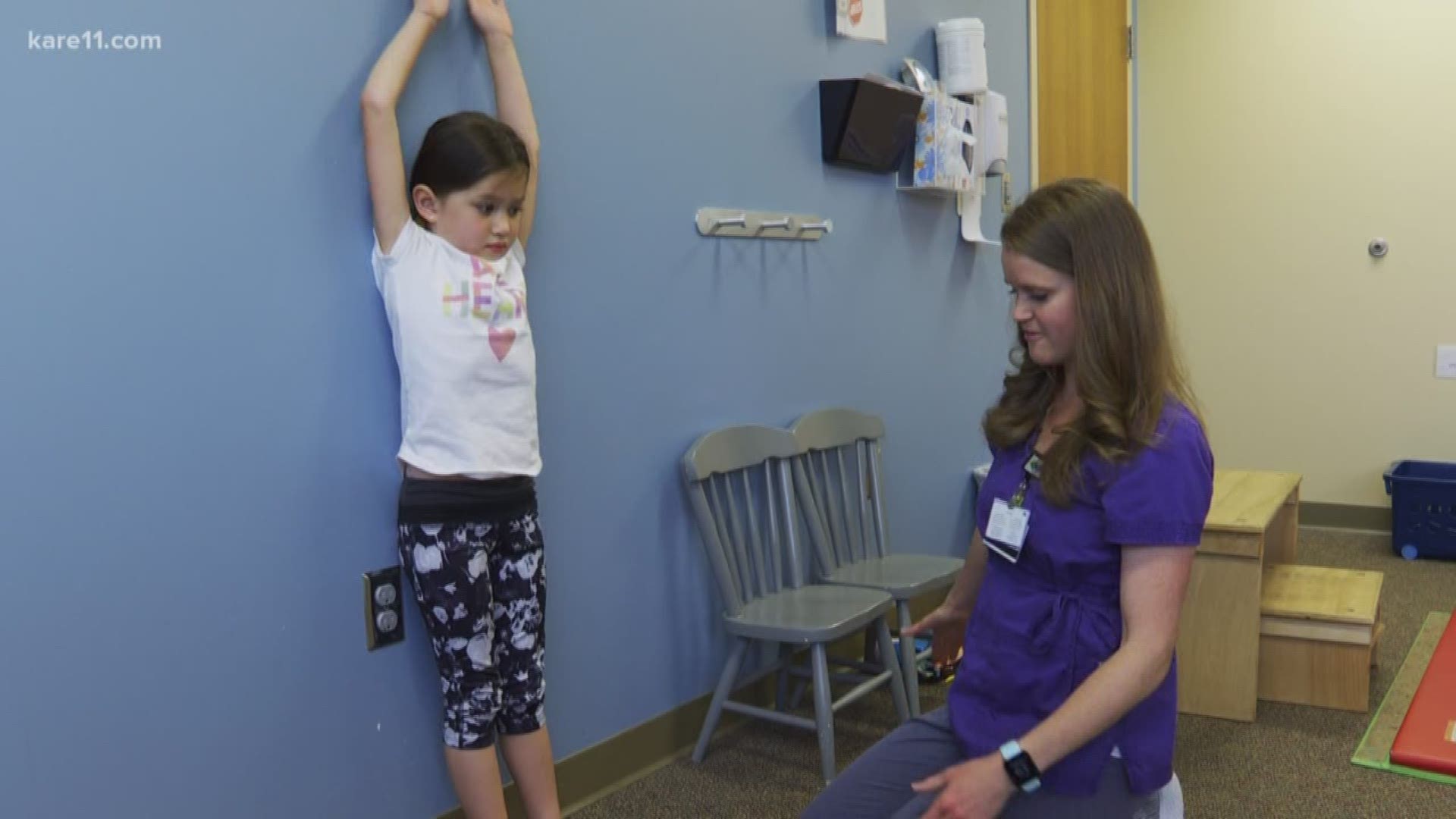Like many six-year-olds, Elaina Habeck, loves acting like an acrobat, but unlike most other kids, she knows what it's like to have her tumbling, swinging and even her balance suddenly taken away from her.
"Her body just kind of started not wanting to do anything," said Thao Habeck, Elaina's mom.
Back in September, Thao felt powerless as her daughter went from feeling sick, to suddenly experiencing partial paralysis.
"She couldn't even lift her neck up or sit up for a long period of time," she said.
"I don't know what happened," Elaina said.
She wasn't alone. Elaina and her family soon learned that she was one of 11 confirmed cases of AFM in Minnesota within a few weeks last year. AFM, which stands for Accute Flacid Myelitis, typically impacts just one in a million children each year, but Minnesota was one of several states where cases spiked in 2018.
Doctors and researchers believe they've identified the virus that causes AFM, but they are still trying to verify the link and understand why some children suffer Polio-like symptoms, including paralysis, while others experience nothing more than cold symptoms.
In most of the Minnesota cases, families reported that children were sick and then woke up with a sudden inability to move one of their limbs.
For Elaina, it was her right arm and her neck.
"When we first started, we had about 15 degrees of motion, to the front and to the side that she could actively do on her own," said Aimee Futrell, Doctor of Physical Therapy at Park Nicollet Clinic in Burnsville.
Futrell started physical therapy with Elaina shortly after she returned to school. At the time, she couldn't lift she struggeled to simply maintain her balance.
"When she would walk through large crowds of kids, if someone bumped her, she would just fall over," Thao said. "She couldn't even hold her own lunch tray."
Thanks to her therapy, Elaina now has her full range of motion, but her paralysis appears to have been more mild than several other Minnesota children.
Orville Young is among several kids with AFM who required nerve transfer surgery to regain mobility. Months later, his mother Elaine says he still can't lift his arm above his shoulder.
"I feel really guilty because I know there are so many other families that are going through so much more," Thao said. "My hope is, you know, obviously, as the research continues, they are able to kind of narrow it down."
In the meantime, Thao and Elaina both say they are grateful for the progress she has made.
"Because now, I can do a lot of stuff by myself," Elaina said.
"She has come a very long way," Thao said. "She's jumping up and hanging on the trapeze on her own. If you look at her now, you would never know that she was even sick."

